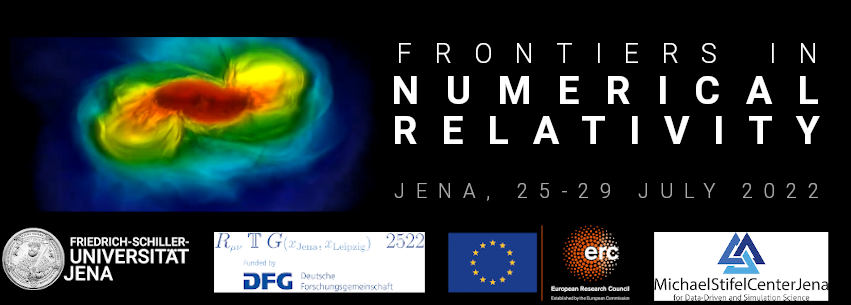Speaker
Description
Numerical relativity has been a frontier problem in computational science for over fifty years. The complexity of this research field spans multiple areas, from the properties of partial differential equations to high performance computing. As gravitational wave detectors continually improve, and new detectors come online, a new challenge will be to compute waveforms with higher fidelity and for a broader array of possible sources. We have developed Dendro-GR, a new computational platform for numerical relativity that uses a highly scalable octree with sparse, wavelet-based refinement. I will present some of initial results obtained with Dendro-GR for merging black hole binaries with different mass ratios. I will also talk about some possible new directions, including a new faster GPU-based extension of Dendro-GR, and some possible approaches to refine solutions in time as well as space. Performance and scaling results for these codes will be presented.

